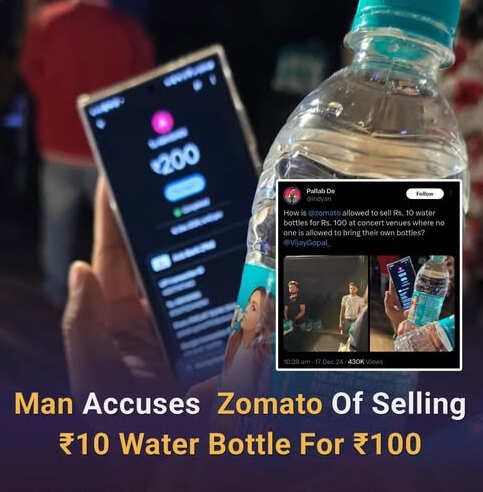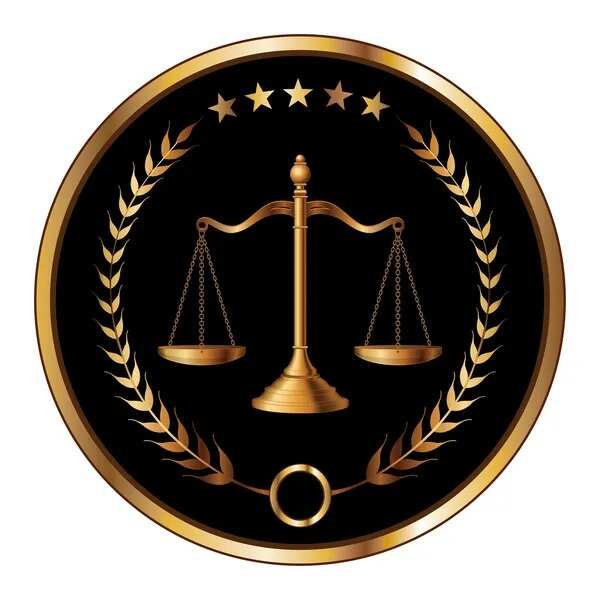Techie's Post on Overpriced Water Bottles at Concert Sparks Outrage, Zomato Responds

Tech worker Pallab De posted on social media accusing Zomato of overcharging for water bottles at a concert, which swiftly went viral and spurred a discussion on the outrageous event costs. Netizens, influencers, and even solicitors have taken notice of De's post emphasising the shockingly different cost between a standard bottle of water and what was charged during the performance.
In his tweet, Pallab De posted a photo of a water bottle with an MRP of merely Rs. 10, although the event venue was selling the bottle for a shockingly Rs. 100. To exacerbate the situation, the venue forbade visitors from carrying their own water bottles inside, therefore forcing them to purchase the costly bottles.
Clearly annoyed with the circumstances, De showed a screen grab of his bill and asked a pivotal question: "How is Zomato allowed to sell Rs. 10 water bottles for Rs. 100 at concert venues?" With people all across the site expressing their indignation over the practice of price-gouging at events, his post—which was tagged with an advocate from the Telangana High Court—quickly acquired traction.
Zomato spoke quickly to the viral post, clarifying their part in the incident. Under De's article, the firm left a remark saying, "Hi Pallab, we're sorry for your experience. Although we were the ticketing partner rather than the event planners, we have noticed your comments and will make sure our own events go forward benefit from them.
Still, this explanation hardly helped to calm the rage. Not holding back, he went on his diatribe by targeting Eva Live, the event planners, in his follow-up posts. He protested their outrageous rates for something as basic as water. His ongoing distribution of pictures of the water bottle with the obviously marked Rs. 10 MRP just served to fan the flames.
The problem of shockingly expensive products at events is not new. At places where people are basically compelled to pay due to limited options, high costs for snacks, drinks, and other basics are not unusual. But what distinguishes this specific occurrence is the participation of Zomato, a big participant in the food delivery sector, who has lately started offering event ticketing.
Zomato's involvement in this situation has left many wondering whether the business ought to have been more aggressive in guaranteeing fair prices for the events they connected with. As they stated, Zomato's participation as a ticketing partner has positioned them at the centre of this debate even if they are not the event planners.
The argument over overpricing at events has spurred a larger discussion on the necessity of improved consumer safeguards, particularly with relation to events that limit personal belongings like water bottles. Often left with little means to question the high fees, attendees are left to accept them. This predicament has caused some to want more control over the rates paid for fundamental needs during such events.
The debate about overpricing is probably going to get more heated as the post keeps getting popularity. Increasingly conscious of their rights, consumers are protesting what they see to be unfair pricing policies. More people sharing their personal experiences begs the question of whether this tragedy will cause long-lasting changes in the way events are run and pricing is handled going forward.
Zomato has reassured its customers so for now that they will consider this input in next activities. For Pallab De and many others, however, this might be only the start of a more extensive debate on the necessity of openness and fairness in event pricing.
--
